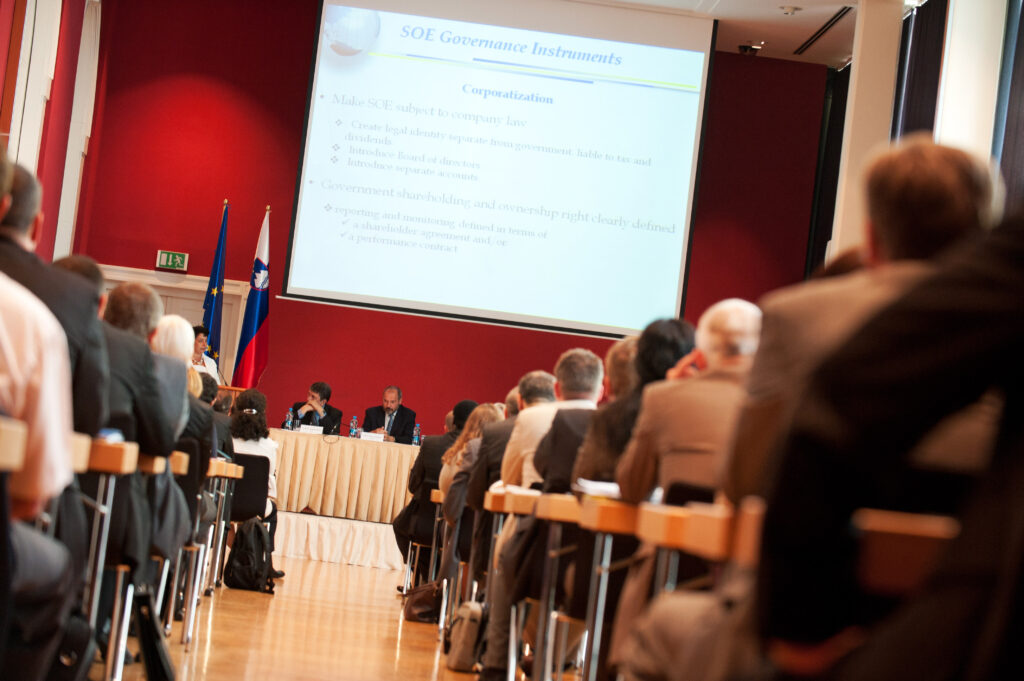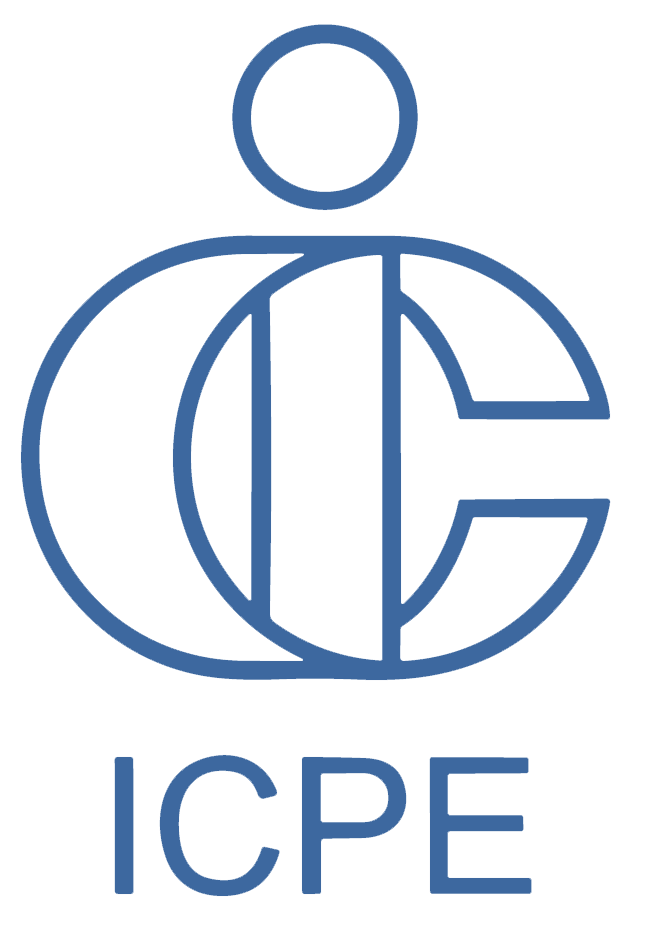SERVICES
Capacity Development
The International Center for Promotion of Enterprises (ICPE) boasts a rich tradition of offering specialized training for government officials, policymakers, and public sector enterprise (PSE) managers from its Member States. In today’s fast-paced world, the demand for public sector organizations to operate with greater efficiency, effectiveness, and citizen-centric responsiveness is ever-increasing. Recognizing this, ICPE’s capacity development training programs have become a cornerstone of our activities.
The Capacity Development courses cover a wide array of topics are dealing with contemporary issues in the public sector, governance and social development:
- Challenges of International Trade and Public Finance,
- Innovation Ecosystem & Science in Promoting Sustainable Development,
- eGovernance for effective Public Administration,
- Risk Management,
- Telecommunications & ICT Technologies and Digital Transformation,
- Energy Efficiency,
- Human Resources Crisis Management in Health Sector,
- Advocacy for Cross-Cultural Communication, Interreligious & Intercivilizational Dialogue,
- Conflict Management and Prevention,
- Impact of Artificial Intelligence and Space Technologies on Development.

The ultimate aim of our capacity development initiatives is to immerse participants in a milieu of best practices, providing them with vital knowledge and hands-on strategies to enhance productivity and performance within their professional spheres. Our programs are meticulously designed to encourage innovative thinking and to equip participants with the agility and resilience needed to navigate and overcome contemporary challenges.
International Training Programmes (Executive Development and Management Development Programmes)
These courses are designed for a diverse range of professionals, from public officials to business executives. They blend theoretical knowledge with practical application, focusing on contemporary challenges in public administration and management. The curriculum is dynamic, regularly updated to reflect the latest trends and practices in public sector management.
Digital Transformation in Government
How digitalisation transforms the ways how the government operaters, how it can improve its efficiency and how it can deliver better services to customers to improve its effectiveness and reach.
Data Analytics in Government
The recent explosion of social media and the digitalization of many different aspects of government activities resulted in the creation of big data: ample amounts of structured and unstructured data. In a parallel development, we are able to reliably and inexpensively store huge volumes of data, efficiently analyse them, and extract relevant information that helps improving both efficiency and effectiveness of government policies, projects and activities. At the end of this workshop, the participants will become competent in recognizing opportunities of using Big Data Analytics and to transform data into knowledge for improving services to government customers and to improve government effectiveness and efficiency.
Transparency and Integrity Challenges in Government
Integrity is imperative for governments and businesses to work together on every level: where are the challenges, and how can they be addressed? How can transparency be reinforced within the government? How to strengthen trust between public, private and other sectors for the benefit of society as a whole?
Healthcare Sector Performance and Efficiency
Demographic changes, increased patient awareness, fast technological progress and development of personalised medicine are changing the health care value chain. Health care systems and organisations are under increasing pressure to deliver better services with limited resources.
Innovation and Change Management in Public Sector
How innovation could happen in governmental structures? Technological progress, new organizational forms, governance structures, funding schemes, policy approaches and public private partnerships call for innovation and changes:
- Tools and approaches for promoting innovation
- How to progress from creativity to innovation.
- Organizational culture that promotes innovation.
- Process of change management in public sector
- Readiness and resistance to changes in the public sector organization
Energy Access and Energy Poverty
- How to define the energy access and energy poverty
- What are the reasons for the energy access gap
- How to ensure the access to electricity and cooking for all (universal access)
- How renewables could contribute to this goal
- Which best practices could be found in emerging economies
The above programmes are designed in close collaboration with the Centre of Business Excellence, School of Economics and Business, University of Ljubljana
Module-Based Courses
These courses offer specialized learning opportunities, tailored to enhance existing professional education programs. They cover various aspects of public management, from policy formulation to administrative ethics. The courses are structured to provide in-depth knowledge in specific areas, helping professionals to augment their skills and understanding of public sector operations.
The above programmes are designed in close collaboration with
International Workshops
These workshops serve as platforms for knowledge exchange and skill development, bringing together practitioners from different regions. The focus is on sharing best practices, innovative approaches, and collaborative problem-solving in public sector management. Participants benefit from the diverse perspectives and experiences of international experts, fostering a global community of practice in public administration.
The above programmes are designed in close collaboration with
International Immersion Programmes
These programs offer a comprehensive educational experience for graduate and postgraduate students, delving into the intricacies of public sector management. Participants engage in a mix of academic learning and practical exposure, including visits to public enterprises and interactions with industry leaders. This immersive approach provides a holistic understanding of public sector dynamics, equipping students with the skills to navigate complex governmental landscapes.
Doing Business in Europe programme
focuses on delivery of theoretical knowledge and practical exposure by providing the framework and experiences by academicians, practitioners and managers on how to conduct business in Europe, covering Slovenia, Croatia, Italy, Austria, Liechtenstein and Switzerland.
Circular Economy in the EU programme
This program provides an in-depth understanding of the circular economy model within the European Union context. It offers insights into sustainable business practices, regulatory frameworks, and environmental policies. Participants will learn from experts in the field and study real-world examples of circular economy implementation in various EU countries.
Global Business Strategy programme
Designed for MBA students, this program focuses on developing strategic thinking and decision-making skills in the global business environment. It covers topics like international market analysis, global branding, and cross-cultural management, with case studies and interactive sessions.
EU Public Sector Management Practices programme
This program is designed for students and professionals in public sector management, focusing on European Union practices and their applicability in developing countries. It offers a comprehensive overview of EU governance models, policy development, and administrative processes. Participants will explore how these practices can be adapted to the context of developing countries, with a particular emphasis on enhancing efficiency, transparency, and citizen-centric governance. The course includes case studies, interactive discussions, and insights from EU public sector experts.
The above programmes are designed in close collaboration with

